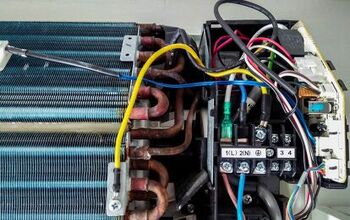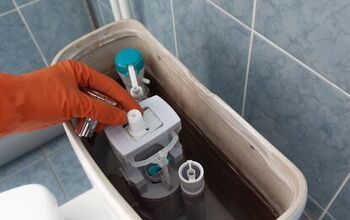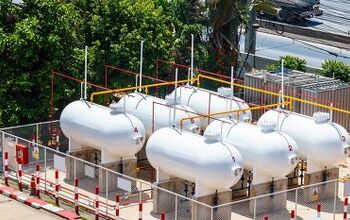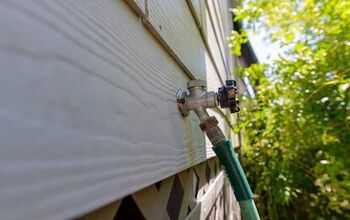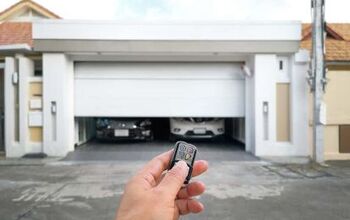How Long For A Hot Water Heater To Heat After A Reset?

There isn’t much that can match up to ruining your day quite like an ice-cold shower. Unfortunately, if you have a faulty water heater, this may become your new normal. Whether the reset button on your hot water has tripped, or you initiated it yourself, you may find yourself wondering how long until you can enjoy hot water again.
Though it would be nice, water heaters aren’t magical devices that house an endless supply of hot water. It takes time for them to turn that undesirably cold water into the steamy warmth that everyone loves. How long it takes them to heat water varies, as not all water heaters are the same and come in a range of different sizes, with the most common being 40 gallons.
Aside from size, there are a number of factors that dictate how long your water heater takes to heat up. So, if your hot water heater has recently been reset, you can expect it to take anywhere from 20 to 80 minutes to heat. We’ll explain how we arrived at those numbers and also provide specifics based on the type of water heater you have, its size, and a variety of other factors.
Do You Need Water Heater Repair Services?
Get free, zero-commitment quotes from pro contractors near you.

Factors that Affect How Long a Hot Water Heater Takes to Heat Up
Although we can provide you with average times for how long a hot water tank takes to heat up, there is much more that should be understood. The following are the factors that have a direct impact on how long your water heater will take to warm up after a reset.
- Water Heater Size: While this may seem like a no-brainer, the bigger the hot water heat, the longer it will take to heat. Conventional tank water heaters are sized based on how many gallons of hot water they can hold at a time. Residential hot water heaters typically range from 20 to 100+ gallons. The more the water heat holds, the longer it takes for the heating elements to work their magic.
- Incoming Temperature: Whether it’s a tankless or tank-style water heater, the temperature of the water after the reset has occurred will determine heat up time. Tank heaters store water and keep it heated in their tank. When incoming water is introduced, it should not have a major effect. However, tankless heaters source water on demand and since groundwater temperature is notoriously low, the water may take longer to warm.
- First Hour Rating (FHR): A water heater’s first-hour rating describes how many gallons of water the unit can supply in one hour, beginning with a full tank of hot water. In general, the higher the first-hour rating, the less time it will take for the heater to heat up all the water in the tank.
- Fuel Type (Gas or electric): Electric water heaters take to take double the amount of time to heat up water as gas hot water heaters. Gas water heaters are much faster because their burners have the ability to reach higher temperatures than the coils in an electric water heater.
- Age/Maintenance Problems: Just like any other household appliance, the age of your hot water heater and lack of general maintenance will eventually affect performance – including how long it takes to heat up.
- Settings: Although hot water heaters may seem pretty straight forward, there’s much more to them than meets the eye. In some cases, you may require the assistance of a professional to check any settings or calibration that could be negatively impacting functionality.
- Pipe Length and Diameter: In order to reach your faucet, your hot water heater has to travel through the pipes in your home before it reaches the appliance you are using. The longer the piping, or the further the appliance is from the heater, the longer it can take for hot water to reach. Similarly, the width of your pipes can affect how long water takes to heat up. The wider the pipe, the more hot water it can carry, but more water means a longer heat time.
How Long For Hot Water Heater to Heat After Reset?
With all of the above factors in mind, you can expect the following heat up times for the various types of hot water tanks:
| Water Heater Type | Time to Heat Up |
| Gas Tank | 30-40 minutes |
| Gas Tankless | 0 minutes* |
| Electric Tank | 60-80 minutes |
| Electric Tankless | 0 minutes* |
| Solar Heater | 60-80 minutes |
*When installed and sized correctly, both electric and gas tankless water heaters can provide nearly instantaneous hot water. However, it will take a couple of seconds for the hot water to travel through your pipes and reach the appliance you are using.
How Long For Gas Hot Water Heater to Heat Up?
The average gas tank water heater will take roughly 30 to 40 minutes to heat up after reset. Although, the time may be slightly less depending on the temperature of the hot water that is currently in the tank. The two factors that determine this time frame is the size of the tank and the heater’s BTU (or British Thermal Unit) rating.
The BTU rating describes the amount of heat that is required to raise one pound of water one degree Fahrenheit. A heater that has more BTUs will heat water faster. A traditional 40-gallon hot water tank will have about 330 pounds of water when full. Put simply, a 40,000 BTU system and a 40-gallon tank will need half of a minute to heat each pound – or approximately 40 minutes total. If your tank is smaller in size or has a higher BTU rating, the heat up time will be much longer.
How Long For Electric Hot Water Heater to Heat Up?
Hot water heaters powered by electricity will generally take double the amount of time to heat up when compared to their gas counterparts. Although more economical, electric elements simply cannot match up with the high performance of gas-powered heating systems. From the moment new water enters the tank, it will take about an hour for the electric water heater to heat the entire 40-gallon tank. Again, if the water is heating up after a reset, this number may vary slightly based on the temperature of the existing water.
Many larger homes elect to purchase a whole house gas heater, as opposed to an electric one, solely based on the speed it takes to heat. However, electric hot water heaters are great for smaller homes or smaller water demands.
How Long For Tankless Hot Water Heater to Heat Up?
Whether the unit is powered by gas or electricity, a tankless water heater can service hot water “on-demand”. Therefore, the only thing that determines how long it takes to receive hot water at your faucet is the distance from the heater to your appliance. So long as the system is working properly, installed correctly, and sized appropriately, it should only take about 15 seconds. It may take slightly longer for hot water to travel through the pipes in larger homes, but should still be far less than a minute.
In both gas and electric tankless water heaters, the water will not start warming until you turn on your faucet, dishwasher, or other appliance. It should be noted that although electric tankless water heaters can provide hot water within moments, they may take slightly longer than their gas counterparts. This simply has to do with the sheer power of gas heat.
How Long For Solar Hot Water Heater to Heat Up?
Since most solar-powered hot water heaters are still connected by electricity, they will take a similar amount of time to heat up. After reset, you can expect a solar hot water heater to take between an hour and an hour and 20 minutes to heat up. However, if your heater does not have a backup energy source, cloudy days with little to no sun could mean that you will not be able to enjoy hot water for quite some time.
Do You Need Water Heater Repair Services?
Get free, zero-commitment quotes from pro contractors near you.

Wrapping It Up
Aside from the type of hot water heater you own, there are a number of other factors that influence how long it will take to heat up after reset. Whatever the reason was for the reset, consider contacting a professional to make sure that your water heater is functioning properly, as no one truly enjoys an ice-cold shower.
Related Guides

Jessica considers herself a home improvement and design enthusiast. She grew up surrounded by constant home improvement projects and owes most of what she knows to helping her dad renovate her childhood home. Being a Los Angeles resident, Jessica spends a lot of her time looking for her next DIY project and sharing her love for home design.
More by Jessica Stone



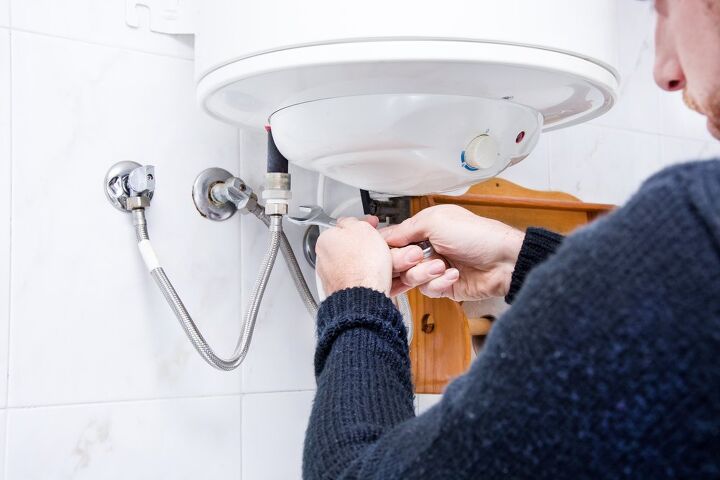







![The 10 Best Table Saws - [2022 Reviews & Buyer's Guide]](https://cdn-fastly.upgradedhome.com/media/2023/07/31/9070645/the-10-best-table-saws-2022-reviews-buyer-s-guide.jpg?size=350x220)
